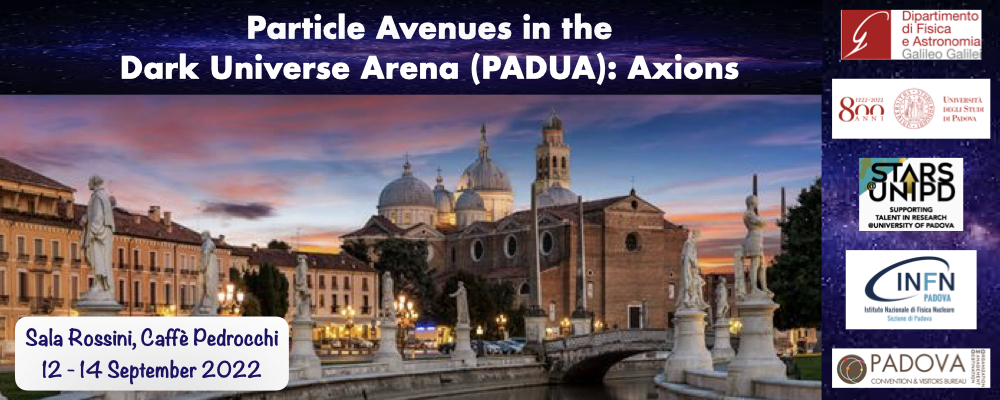Astronomical and cosmological observations reveal that visible matter constitutes only a fraction of the total mass of the universe. Some form of dark matter, five times more abundant than ordinary matter, must exist. However, these observations tell us nothing about the origin and composition of this invisible constituent. None of the known particles is a viable candidate, and this firm empirical evidence leaves no doubt about the need for physics beyond the standard model.
Unveiling the mystery of dark matter will rely upon the synergy between investigations of nature at the largest and smallest length scales.
The PADUA workshop will gather world experts to review the state-of-the-art and explore novel directions in the context of a well-motivated and popular dark matter candidate: the QCD axion.
The participation in the workshop includes coffee breaks and social dinner. No registration fee is required. Due to the room capacity of the workshop venue, the number of participants will be limited. The deadline to apply is July 15th, 2022.
CONFIRMED SPEAKERS
- José Luis Bernal (Johns Hopkins University)
- Caterina Braggio (University of Padua)
- Andrea Caputo (Tel Aviv University)
- Pierluca Carenza (Stockholm University)
- Raymond Co (University of Minnesota)
- Miguel Escudero (Technical University of Munich)
- Martina Gerbino (INFN Ferrara)
- Arthur Hebecker (Heidelberg University)
- Sang Hui Im (IBS Daejeon)
- David J.E. Marsh (King’s College London)
- Enrico Morgante (Johannes Gutenberg University of Mainz)
- Marco Regis (University of Turin)
- Andreas Ringwald (DESY Hamburg)
- Nicholas Rodd (CERN)
- Geraldine Servant (DESY Hamburg)
- Elisa Todarello (University of Turin)
- Giovanni Villadoro (ICTP Trieste)
- Robert Ziegler (Karlsruhe Institute of Technology)
ORGANIZING COMMITTEE
- Francesco D'Eramo
- Luca Di Luzio
- Antonio Masiero
- Marco Peloso
- Ennio Salvioni
- Luca Vecchi

